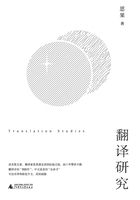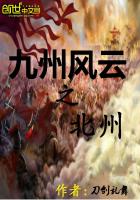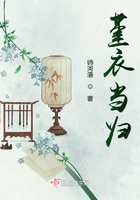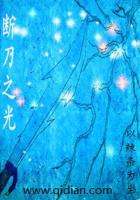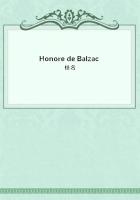indomitable [in'dmitbl] adj. 不屈不挠的;不服输的;好胜的
A great man is one who has a strong will and an indomitable spirit.
一个大人物是一个具有坚强意志和不屈不挠精神的人。
他天生善于激励人。
尽管我们失去了联系,但每当我选择生活而不是应付生活时,就会想起他。
杰里活了下来,部分归功于他的医生们,更主要的是因为他坚强的态度。
If an employee was having a bad day, Jerry was there telling the employee how to look on the positive side of the situation.
look on:旁观;观看;看待
Operate on me as if I am a living man, not a dead man.
as if:好像;仿佛
最伟大的信任
The Greatest Trust
佚名 / Anonymous
Last night I was driving from Harrisburg to Lewisburg, Pa, a dis-tance of about eighty miles. It was late. I was late and if anyone asked me how fast I was driving, I'd have to plead the Fifth Amendment to avoid self-incrimination. Several times I got stuck behind a slow — moving truck on a narrow road with a solid white line on my left, and I was clinching my fists with impatience.
At one point along an open highway, I came to a crossroads with a traffic light, I was alone on the road by now, but as I approached the light, it turned red and I braked to a halt. I looked left, tight and behind me. Nothing. Not a ear, no suggestion of headlights, but there I sat, waiting for the light to change, the only human being for at least a mile in any direction.
I started wondering why I refused to run the light. I was not afraid of being arrested, because there was obviously no cop around, and there certainly would have been no danger in going through it.
Much later that night, after I'd met with a group in Lewisburg and had climbed into bed near midnight, the question of why I'd stopped for that light came back to me. I think I stopped because it's part of a contract we all have with each other. It's not only the law, but it's an arrangement we have, and we trust each other to honor it: we don't go through red lights. Like most of us, I'm more apt to be restrained from doing something bad by the social convention that disapproves of it than by any law against it.
It's amazing that we ever trust each other to do the right thing, isn't it? And we do, too. Trust is our first inclination. We have to make a deliberate decision to mistrust someone or to be suspicious or skeptical. Those attitudes don't come naturally to us.
昨晚我从哈里斯堡驱车前往宾夕法尼亚州的刘易斯堡,全程约80英里。天很晚了,我迟到了,若有人问我车速如何,我得求助于美国宪法的第五条修正案。很多次,我都被一辆缓慢行驶的卡车挡住了前行的路——路面很窄,而我的左侧是不可逾越的白线。于是,我急躁起来,不由得捏紧了拳头。
开到一个有交通灯的十字路口时,路上只剩我一个人了。就在我快到路口时,交通灯变红了,我只好紧急刹车。我左顾右盼,又望了望后方。没看到其他车子,没有丝毫动静,也没有前灯的光影。可我仍旧静静地坐在那里,等红灯变绿,方圆一英里仅我一人。
我不禁为自己不闯红灯而诧异。我不必担心被抓,显然,附近并无警察,闯红灯不会有任何危险。
那天晚上,我见到了刘易斯堡的一些朋友,午夜我才得以上床休息。我辗转反侧:为什么我会停下车子,而不闯红灯?我想,我之所以停下来,是因为彼此间的契约。那不仅是法律,而且也是我们应共同遵守的协议:我们不可以闯红灯。与大多数人一样,我要尽量控制自己,不违背社会行为准则,这不只是因有法律的约束。
令我吃惊的是,对做正确的事,我们向来彼此信任,不是吗?我们也的确如此。信任是我们的第一本能。一定要在深思熟虑后,再对别人不信任或怀疑,因为那样的态度不是我们的本能反应。
人与人之间若缺少了相互信任,那是非常可怕的。信任,是所有交际活动的首要条件,哪怕是在一个无人的红灯下,你也应该遵守着国家、社会对你的信任,等灯变绿了再走。
amendment ['mendmnt] n. 改善;改良;改正;修正案
Charcoal can be a beneficial soil amendment as it could be stable
for thousands of years.
木炭可以是一种有益的泥土改善品,其功能在上千年里能保持稳定。
self-incrimination ['self,inkrimi'nein] n. 自证其罪(指刑事案件中的作不利于自己或有可能使自己受到刑事起诉的证言,美国宪法认定此种证言不能作为合法证据)
The prosecuting attorney cannot question the accused, as the US
Constitution forbids self-incrimination.
检察官不可以询问被告,因为美国宪法禁止“自证其罪”。
clinch [klint] v. 互相扭抱
The boxers clinched and the referee had to separate them.
拳击手扭抱在一起,裁判让他们分开。
convention [kn'venn] n. 大会;协定;惯例
We are scornful of the forces of convention.
我们藐视习惯势力。
我不禁为自己不闯红灯而诧异。
那不仅是法律,而且也是我们应共同遵守的协议:我们不可以闯红灯。
信任是我们的第一本能。
I came to a crossroads with a traffic light, I was alone on the road by now, but as I approached the light, it turned red and I braked to a halt.
come to:苏醒;总数为;结果是;涉及;谈到;总计
It's not only the law, but it's an arrangement we have, and we trust each other to honor it: we don't go through red lights.
not only ... , but ... :不但……,而且
人的两种驱动力
The Two Drives in Man
佚名 / Anonymous
Man is, at one and the same time, a solitary being and a social being. As a solitary being, he attempts to protect his own existence and that of those who are closest to him, to satisfy his personal desires, and to develop his innate abilities. As a social being, he seeks to gain the recognition and affection of his fellow human beings, to share in their pleasures, to comfort them in their sorrows, and to improve their conditions of life. Only the existence of these varied, frequently conflicting, strivings accounts for the special character of a man, and their specific combination determines the extent to which an individual can achieve an inner balance and can contribute to the well-being of society.
It is quite possible that the relative strength of these two drives is, in the main, fixed by inheritance. But the personality that finally emerges is largely formed by the environment in which a man happens to find himself during his development, by the structure of the society in which he grows up, by the tradition of that society, and by its evaluation of particular types of behavior. The abstract concept "society" means to the individual human being the sum total of his direct and indirect relations to his contemporaries and to all the people of earlier generations. The individual is able to think, feel, strive, and work by himself; but he depends so much upon society — in his physical, intellectual, and emotional existence — that it is impossible to think of him, or to understand him, outside the framework of society. It is "society" which provides man with food, clothing, a home, the tools of work, language, the forms of thought, and most of the content of thought; his life is made possible through the labor and accomplishments of the many millions past and present who are all hidden behind the small word "society".


